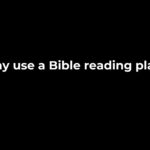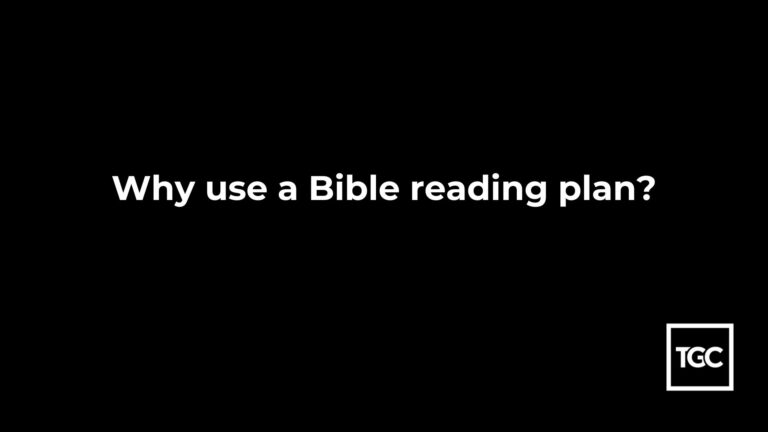William Blake [Public domain, PD-US]
The Book of Job is arguably the most demanding and rewarding book in the Old Testament. It is demanding because Job’s friends make a poor case well while Job makes a good case poorly; meaning that no one has the full picture and no one is telling the whole truth until God shows up at the end. The Book of Job forces you to think and to read with discernment, but for those willing to put in the effort there is a lifetime of wisdom and blessing to be discovered. If you were to ask me to summarize the benefits of reading and studying The Book of Job I would want to mention at least the following 5 things:
It provides a necessary counterbalance to the Book of Proverbs
If you only had the Book of Proverbs to go by you might think that good things always happen to good people and bad things always happen to good people. After all, the Book of Proverbs does say:
Whoever sows injustice will reap calamity (Proverbs 22:8 ESV)
Whoever is generous to the poor lends to the LORD, and he will repay him for his deed. (Proverbs 19:17 ESV)
That does seem to suggest a connection between wickedness and calamity on the one hand and righteousness and prosperity on the other, but that’s why God included other books in the Bible. Tremper Longman III puts it this way:
Proverbs … raises a disturbing issue: the sages often motivate wise behaviour by linking it to reward, but in reality, bad things happen to good people, the wise are not always rewarded as they expect. That raises the question of the justice of God. Both Job and Ecclesiastes struggle with the apparent disconnect between God’s justice and our actual life experience… Indeed, the message of both the book of Job and Ecclesiastes should keep people from reading the rewards of Proverbs with undue optimism.[1]
Said another way, the Book of Job is the antidote to our natural inclination towards varieties of the Prosperity Gospel. It reminds us that many good principles are presently opposed and many promises presently deferred in this broken and fallen world.
It serves as guide in our consideration of human suffering
The Book of Job helps us think about one of the most confusing things we are ever likely to experience. As we listen to Job’s friends we hear a lot of what we tend to say to ourselves when we’re hurting. We hear the whispers of our enemy – often, as in Job’s case – coming through the mouth of our friends. But we also hear the ring of falsehood – the reader knows what is actually going on and the reader knows that what the friends are saying doesn’t actually apply in the case of Job and that reminds us that there is a hidden world of divine purpose behind every experience of human pain.
Listening to those speeches – and empathizing with brother Job broadens out our understanding of this massively complicated and emotionally freighted issue. It will make us better sufferers and it will make us better counsellors to friends and loved ones experiencing terrible pain.
It provides an example of endurance under trial
What are we allowed to say when we are suffering?
What questions are we permitted to ask and which ones will get us into trouble?
One of the most amazing things about the Book of Job is how gracious the Lord is to Job despite all of the emotional and immoderate things he said to his friends and about God over the course of the narrative. When God shows up at the end of the dialogue he says to the eldest of Job’s friends:
My anger burns against you and against your two friends, for you have not spoken of me what is right, as my servant Job has. Now therefore take seven bulls and seven rams and go to my servant Job and offer up a burnt offering for yourselves. And my servant Job shall pray for you, for I will accept his prayer not to deal with you according to your folly. For you have not spoken of me what is right, as my servant Job has. (Job 42:7–8 ESV)
Apparently a great deal of what Job said in his suffering was dismissed as merely the incoherent, though understandable ravings of a terribly wounded person. God very graciously dealt with what the substance of what Job said while ignoring the worst of Job’s histrionics. At the end of the book we are told:
And the LORD restored the fortunes of Job, when he had prayed for his friends. And the LORD gave Job twice as much as he had before. (Job 42:10 ESV)
That must be very encouraging to a person experiencing terrible pain.
The Lord will be gracious with you.
Much of what you say in your pain will be discounted as “words to the wind.”
In the New Testament the focus is on Job’s endurance in faith – not a single word is said about his various excesses of expression:
Behold, we consider those blessed who remained steadfast. You have heard of the steadfastness of Job, and you have seen the purpose of the Lord, how the Lord is compassionate and merciful. (James 5:11 ESV)
The Book of Job is a guide and an encouragement for people processing overwhelming calamity and pain.
It encourages humility of mind and lowliness of thinking
Neither Job nor his friends ever really knew what was going behind the scenes that truly explained the extreme nature of Job’s predicament. That is one of the major points being made in the book. We really don’t know so much of what is going on in the universe – only God knows and therefore we should probably say a lot less than we do and we should probably say it with a lot less confidence than we tend to say it.
This is what Peter means by lowliness of mind in 1 Peter 3:8: “Finally, all of you, have unity of mind, sympathy, brotherly love, a tender heart, and a humble mind” (1 Peter 3:8 ESV).
This is what Paul meant when he talked about seeing through a glass darkly in 1 Corinthians 13:12 – we don’t have the whole picture. We often can’t see any further than our own nose and therefore we ought to esteem the Word of God highly and trust our own thoughts and opinions minimally – because way down here in the muck and the mire of sin and human deceitfulness, wisdom and understanding are awfully hard to find. Job talks about that in Job 28.
The deep says, ‘It is not in me,’ and the sea says, ‘It is not with me.’ (Job 28:14 ESV)
It isn’t with Job’s three wise old friends either.
And nor is it found in the mouth of the brilliant and charismatic Elihu.
Nobody in this story really knows what is going on and Job will not find the answers that he seeks until he hears a Word from the Lord.
It points people to Jesus Christ – the ultimate innocent sufferer and the one who finally solves the problem of evil in this world.
Job comes to the conclusion that what he needs is some kind of mediator – some kind of advocate who will help him plead his case before God. He hopes that such a person exists somewhere in the universe:
Even now, behold, my witness is in heaven, and he who testifies for me is on high…. he would argue the case of a man with God, as a son of man does with his neighbor. (Job 16:19–21 ESV)
This is a growing hope in Job – a hope that at times Job seems barely able to hold on to – but it sustains him through the darkest moments of his personal trial. Of course in the New Testament Job’s shadowy hope becomes our certain faith; what Job looked forward to we now look back upon. On the other side of the cross and the empty tomb we see Jesus living before the Father ever to make intercession for us.
Job also has a hope in some sort of judgment, recompense and restoration after death. In chapter 19 he speaks; probably better than he knows, saying:
For I know that my Redeemer lives, and at the last he will stand upon the earth. And after my skin has been thus destroyed, yet in my flesh I shall see God, whom I shall see for myself, and my eyes shall behold, and not another. (Job 19:25–27 ESV)
In the last Book of the New Testament, we hear Job’s hope affirmed by the voice of God himself. The Apostle John says:
I heard a loud voice from the throne saying, “Behold, the dwelling place of God is with man. He will dwell with them, and they will be his people, and God himself will be with them as their God. 4 He will wipe away every tear from their eyes, and death shall be no more, neither shall there be mourning, nor crying, nor pain anymore, for the former things have passed away.” 5 And he who was seated on the throne said, “Behold, I am making all things new.” (Revelation 21:3–5 ESV)
That’s the ultimate answer to the question of pain and suffering in this world and that is the ultimate reason for reading and studying the Book of Job:
It reminds us of our great need and of God’s great provision through the person and work of Jesus Christ.
Thanks be to God!
Pastor Paul Carter
To listen to the most recent episodes of Pastor Paul’s Into The Word devotional podcast on the TGC Canada website see here. To access the entire series on the Book of Job see here. You can also find it on iTunes.
[1] Tremper Longman III, Proverbs in Baker Commentary On The Old Testament Wisdom And Psalms (Grand Rapids: Baker Academic, 2006), p. 12 and 32.
















